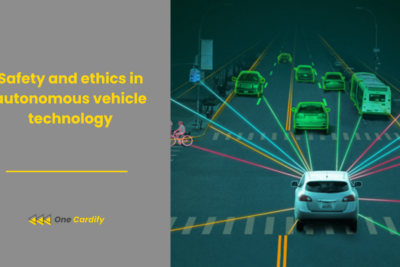
Blockchain's role in secure digital transactions
Blockchain technology has brought a transformation to the digital scene over the last few years. No one can match the contribution that it brings to security in digital transactions. This article gives an insight into the essential role blockchain plays in securing online transactions, giving a clear understanding to both the supporters and the opposers.Blockchain technology, sometimes linked with cryptocurrencies, reaches far beyond. It is revolutionizing industries in securing digital transactions, providing transparency, immutability and efficiency. Through decentralization of data storage, blockchain is able to reduce the risks that come with data breaches and fraud.This full-fledged inquiry is designed to debunk how blockchain strengthens transaction security and why it is a pillar of trust in digital world. Continue to learn its mode of operation, used cases, and what it promises for safe digital activities.
The Essence of Blockchain in Reinforcing Digital Security
Basically, blockchain is a type of distributed ledger technology that log transactions on several computers. This decentralization ensures that no individual owns the data, which in the long run improves the security. Each block in the chain consists of a number of transactions, and once added, these transactions are immutable and cannot be changed.Blockchain transparency has a double function through which it is used to create trust among users and to act as a precaution to prevent malice. Since every transaction is recorded and can be verified by any participant, changing data within a blockchain is next to impossible without consensus.Additionally, this technology uses cryptographic hash functions to protect data, rendering it tamper-evident. The hashing intensive nature of transaction data ensures that every attempt to alter the data would not only require extraordinarily large amounts of computational power, but would also be quickly noticed by others on the network.With so many security measures in place, blockchain becomes an excellent tool for secure digital transactions in different sectors, beginning with finance and ending supply chain management.
Related content
Related content
Applications of Blockchain in Secure Transactions
The uses of blockchain on guaranteeing secure transactions are diverse and effective. In the finance space, it promotes secure and transparent payments that decrease the risk of fraud and unauthorized transactions.Blockchain is widely used in supply chains as it provides an immutable and transparent ledger of the movement of items. This builds assurance among interested parties and also, prevents tampering.Outside these industries, blockchain supports safe digital contracts, or smart contracts, through which transactions are executed automatically when predetermined parameters are met, thereby lowering the risk of fraud even more.The applications demonstrate the flexibility of blockchain in enhancing secure digital transactions, thus making it useful in various sectors.
Overcoming Challenges for Broader Adoption
Although having many benefits, blockchain technology nevertheless has challenges to be more widely used. Scalability concerns, regulatory challenges, and awareness problems among the general public are barriers.Work is being done to meet these problems that includes the creation of more flexible blockchain systems and dealing with regulatory agencies in order to come up with clear guidelines. The educational initiatives are equally important in denouncing the technology for the public for which there are the numerous benefits as well as its limitations being dealt with responsibly.At the point when these challenges are being tackled one by one, blockchain’s part in secure digital transactions will most probably become the most important which will stimulate the innovations in the field of digital trust establishment.
Secure: The Keyword in Blockchain Transactions
It is security that is the distinguishing factor of the blockchain within the digital transaction area. The technology’s inherent properties ensure that not only are the transactions efficient, but also, safe from any kind of manipulation.Utilizing safe blockchain technology for the digital transactions offers a security level that is difficult to achieve for the traditional digital transaction methods. Thus, the word ‘safe’ tends to be a synonym for blockchain transactions.The power of the blockchain is in its ability to record and verify transactions in a secure manner without a central intermediary.Adoption of this standard represents movement towards higher security requirements in digital transactions that reflect the rising demand for trust and openness in the digital world.
Blockchain is a digital ledger technology that records transactions across multiple computers, ensuring that the data is secure and unalterable without consensus among participants.
By decentralizing data storage and using cryptographic hash functions, blockchain makes data tampering evident and nearly impossible, thereby enhancing the security of digital transactions.
Yes, blockchain technology extends beyond cryptocurrencies, providing secure and transparent solutions for digital transactions across various sectors including finance, supply chain management, and legal contracts.
Scalability, regulatory uncertainties, and the need for greater public understanding are major challenges hindering wider adoption of blockchain technology.
In supply chains, blockchain provides a transparent and immutable record of product movements, enhancing trust among stakeholders and reducing the risks of fraud and tampering.
Smart contracts are self-executing contracts with the terms of the agreement directly written into lines of code. They automatically enforce and execute transactions when predefined conditions are met, adding another layer of security.
Future developments may include advancements in scalability, deeper integration with traditional financial systems, and innovative solutions addressing current limitations, leading to broader adoption of blockchain for secure digital transactions.
Conclusion
The part of blockchain in securing digital transactions is enormous, it ensures the highest security, visibility, and effectiveness. The influence of the technology grows with evolution, leading to the redirection of the digital understanding of trust and safety.However, using innovation and working together to solve the existing obstacles will be imperative in realizing the full potential of blockchain. A bright future is in the cards for secure digital transactions with blockchain in the lead.Benefiting from and at the same time overcoming the shortcomings will play a critical role for businesses, government, and individuals as we approach a more secured digital tomorrow.Blockchain technology is one of the mainstays of digital security, introducing a new age of secure and transparent transactions. The growth of its consumption everywhere will clearly sculpt the age of digital transactions and will be a safer place for digital transactions to take place.






Related Posts